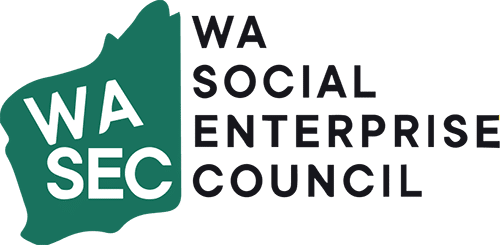The inaugural Impact Economy Forum, held at Kings Park, Perth, welcomed a diverse group of 200 attendees ranging from social entrepreneurs, government officials, and industry experts to passionate community leaders and investors. This groundbreaking gathering was not just about discussions; it was a convergence of synergy, innovation, and a shared vision for a better tomorrow.
As attendees settled into their seats, the palpable energy in the room set the stage for a day filled with enlightening conversations and transformative ideas. The event, organised by Impact Seed, marked the largest convergence of leaders focused on the impact economy in Western Australia. The Forum sought to address pressing social and environmental challenges by harnessing the power of innovation and entrepreneurship. With engaging panels, thought-provoking provocations, and a showcase of compelling social enterprises, the Forum was a testament to the growing momentum behind impact investment – a movement that prioritises people and the planet over profits.
The opening keynote, delivered by the esteemed Kado Muir, a cultural leader and advocate for First Nations economic models, captivated the audience with its profound insights. Muir highlighted the importance of rethinking value by integrating principles of respect, responsibility, and reciprocity – principles intrinsic to First Nations cultures. His keynote, entitled “Ngapartji: A Customary Economic Model – An Impact Approach,” invited attendees to consider an economy that values ‘being’ over ‘doing’, focusing on the connection to people and place rather than mere output and activity.
Dr. Cindy Reese Mitchell echoed this sentiment, sharing her experience of testing innovative investment models at the Forum. “I seized the Impact Economy Forum in Perth yesterday to test our thinking on a novel blended capital model drawing on principles of solidarity investing and character-based lending,” she shared, emphasising the importance of adapting investment strategies to the unique needs of remote Northern Australia. Her work with Indigenous female innovators in the Kimberley serves as a potential blueprint for broader applications.
Throughout the day, over 20 speakers, including notable figures such as the Hon. Stephen Dawson MLC and the Hon. Patrick Gorman MP, addressed various facets of the impact economy. The Forum emphasised the need for an equitable transition towards clean energy, stressing community-level engagement and leadership as crucial components in achieving this goal. Discussions also centered around the significance of social procurement and its potential to empower businesses to secure contracts based on positive impact rather than just price.
Bernadette Amos, a Vocational Education and Training Specialist, captured the event’s essence, sharing that it “was one of the best and most thought-provoking events I have attended in some time. How do we measure and value social impact in our traditional financial frameworks, or do we need new frameworks?” Her reflections highlighted the need for innovative approaches to investment and measurement in the impact economy.
One of the most compelling aspects of the Forum was its focus on inclusivity and the equitable distribution of resources. The notion that all organisations have an impact, both positive and negative, resonated deeply with attendees. There was a collective acknowledgment of the need for transparency and shared responsibility in accounting for these impacts. This honest approach encourages a culture of learning and adaptation, essential for driving meaningful change.
The afternoon sessions included a panel moderated by WASEC’s CEO, Olivia Chapman, which focused on how social procurement can be a powerful tool for social change. Panellists, including Kane Blackman from Good Sammy and Pat Ryan from Dismantle, shared their experiences in leveraging procurement to create employment opportunities, particularly for marginalised communities. The discussions underscored the importance of redirecting government funding to suppliers that deliver both economic and social outcomes, illustrating a cost-neutral opportunity for impactful social change.
Alexandra Humphry, who facilitated a session on capital dynamics, reflected, “We explored innovative investment and financing structures that crowd in private capital to help solve environmental and social challenges,” underscoring the panel’s exploration of novel models like blended capital approaches. This session pushed attendees to consider the responsibilities tied to investing for positive change.
A highlight of the event was the Social Enterprise Showcase, where innovative enterprises like Mettle Women Inc., Loop Upcycling, and Dilji Labs presented. Franco Randazzo, CEO of Loop Upcycling, emphasised the necessity of continued support for social enterprises and urged those involved to capitalise on the current moment and momentum. “The incredible work being done by social enterprises in sustainability now, more than ever, needs sustained support. It’s crucial that the momentum from these events doesn’t fade into the “we’ve always done it this way” mindset when it comes to social procurement and impact investment. The opportunity is real, and the time is now to act and accelerate the change we so desperately need,” shared Randazzo.
The event’s success is owed in large part to the tireless efforts of the Impact Seed team, led by visionaries like Kylie Hansen and Sven Stenvers. Kylie Kerin praised the event for its powerful community-building and that it “reflected the very powerful fabric an impact economy community can weave—one that challenges the status quo for purpose, not ego.”
As the Forum drew to a close, the reflections shared by participants echoed a shared commitment to fostering an economy that is sustainable, inclusive, and equitable. The conversations initiated at the Forum are expected to catalyse further dialogue and partnerships, driving a collective effort to build a fairer society for all Australians, regardless of their postcode, school, or faith.
The inaugural Impact Economy Forum highlighted a promising future where impact investment and social enterprise are at the forefront of economic development. The momentum generated by this gathering is set to influence policy, drive innovation, and support the growth of an economy that gives every Australian the opportunity to thrive.
To contribute to building an impact economy, we should heed the Forum’s call to action: continue pushing boundaries, cultivate transparency, and commit to courageous innovation. The time for impact-driven change is now, and together, we can shape a future that prioritises the well-being of people and the planet.
Original source: https://community.socialchangecentral.com/p/scc/resource/i/3f2484fc-2541-4625-b5e7-16c6486de381/


